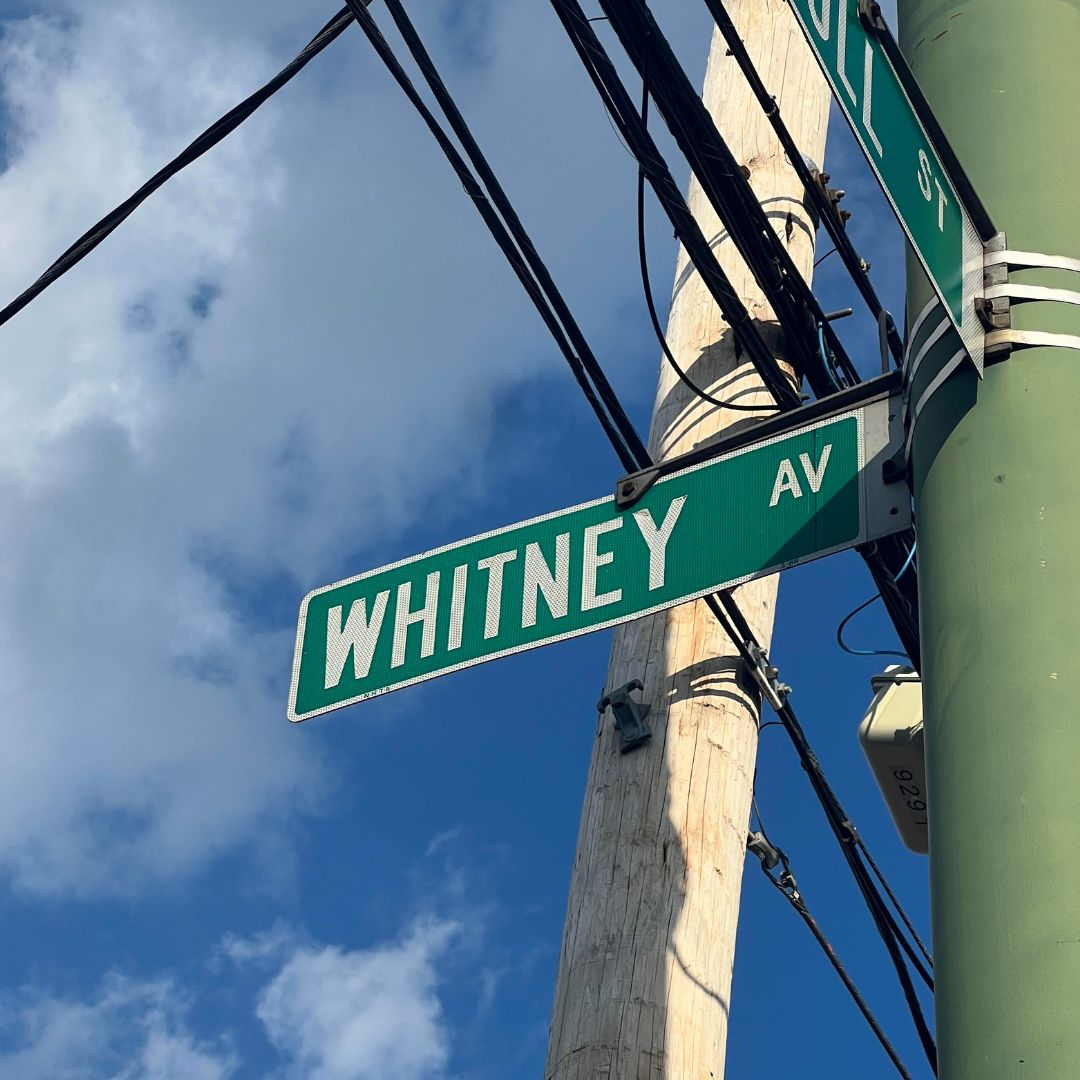City alders throw out bid to rename Whitney Avenue
The renaming proposal’s main proponent, former Yale grad student Robert Lucas, told the News he still views the increased awareness as a victory despite its legislative failure.

Ethan Olim, Contributing Photographer
The New Haven Board of Alders voted unanimously on Tuesday evening to drop a measure that would have renamed Whitney Avenue.
Robert Lucas SOM ’23 initially raised the idea with several alders in February, suggesting a change because the street’s namesake, Yale alumnus Eli Whitney, invented the cotton gin, which caused an expansion of slavery. But when the proposal came up for discussion in a committee meeting in July, no one showed up to voice support for it — not even Lucas, who by then had moved to Washington, D.C. full-time.
After Tuesday’s vote, Lucas told the News he had not intended for his emails to alders or their staff to set in motion a formal legislative process to rename the street, one of New Haven’s most prominent.
“These steps before the committee and then the board are just one step toward awareness,” he said. “So to me, I think of it as a positive development overall.”
Lucas, who now works at the World Bank, began his push to reconsider the use of Eli Whitney’s name in a News op-ed in February, while he was still a student at the School of Management. Whitney, a 1792 Yale graduate, is best known for inventing the cotton gin, which led to a surge in demand for enslaved labor in the American South.
In the op-ed, Lucas proposed that the street should instead adopt the name of the trailblazing physicist Edward Bouchet, who became the first Black person to receive a doctorate at an American university when he was awarded one by Yale in 1876.
Lucas said he also believes Yale should rethink the name of the Eli Whitney Students Program for nontraditional undergraduates. Last spring, after contacting the program’s advisory committee, he did not receive an answer other than that his message was received, Lucas said.
“I had no illusions when writing my article back in February that one article could change the mind of an entire community or the University,” Lucas said. He is considering writing a second piece on the subject.
He pointed out that the Eli Whitney Students Program began in 2008, so Whitney’s name, in reference to the program, is less deeply rooted around campus than those of other historical figures with ties to slavery who have been memorialized at Yale.
It took years of protests for Yale to grant Grace Hopper College its current name, replacing its old name commemorating the prominent pro-slavery advocate John C. Calhoun in 2017. Calhoun graduated from Yale in 1804. In Lucas’ view, Whitney’s legacy similarly runs counter to the University’s values.
“John Calhoun was a thought leader and a proponent of slavery. Eli Whitney helped operationalize it,” Lucas said. “Yet this is the entrepreneurial spirit that Yale wants to project.”
University spokesperson Karen Peart wrote in an email to the News that Yale follows the approach set out in 2016 by the Committee to Establish Principles on Renaming. She did not address Lucas’ criticism of the University’s using Whitney’s name.
Lucas was the target of antisemitic flyers that appeared along Whitney Avenue in April, claiming that he was a Jew with “anti-White hatred.” Lucas is not Jewish.
After contacting a few alders in February, Lucas judged that a proposal to change Whitney Avenue’s name to Bouchet Avenue would stand little chance of success without support from the alders’ constituents. The idea nonetheless became an item on the docket of the City Services and Environmental Policy Committee.
At the committee’s July 6 meeting, the only person to testify about the Whitney Avenue issue, New Haven resident Anstress Farwell, opposed renaming the street. Farwell said she thought Edward Bouchet deserved to be honored elsewhere, such as in the name of a local school. She said she disagreed with the idea that “someone has to lose something for someone else to gain something.”
Ward 10 Alder Anna M. Festa, the chair of the committee, told the News she has no opinion on renaming Whitney Avenue.
“If the public supports it,” Festa said, “we like to listen to the argument and have a discussion.”
When it came time for the alders to address the Whitney Avenue proposal on Tuesday evening, Festa stood and, mentioning the lack of public testimony in favor of the change, urged her colleagues to grant what’s called “leave to withdraw.” They did so in a voice vote.
The hourlong Board of Alders meeting also included a celebration of recently trained EMTs and unanimous votes on a series of other items. The alders gave the city approval to apply for and accept a set of federal public works grants. They also authorized the New Haven Police Department to take in a service dog donated by the non-profit group Puppies Behind Bars.
The Board of Alders meets in City Hall at 165 Church St. — just over two blocks from where Whitney Avenue begins.
Interested in getting more news about New Haven? Join our newsletter!







